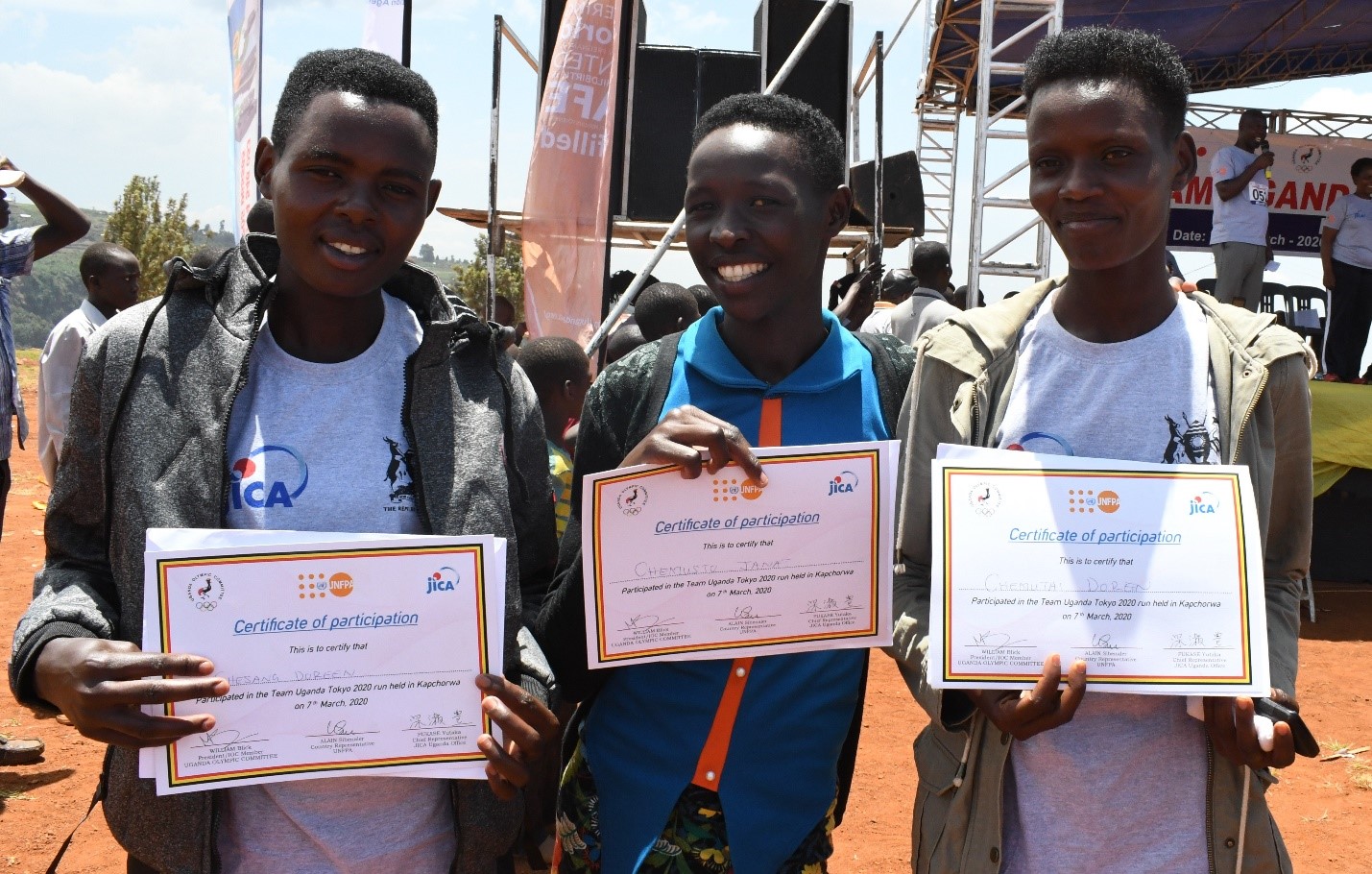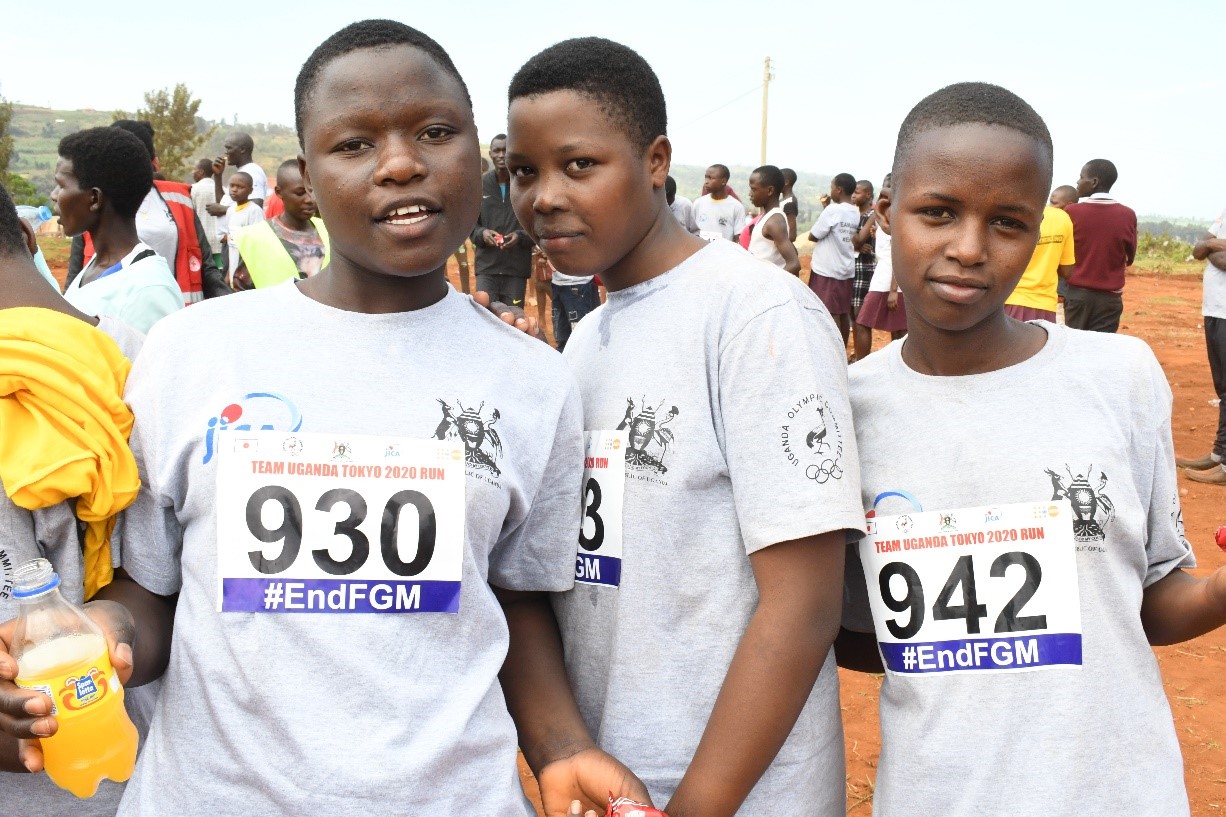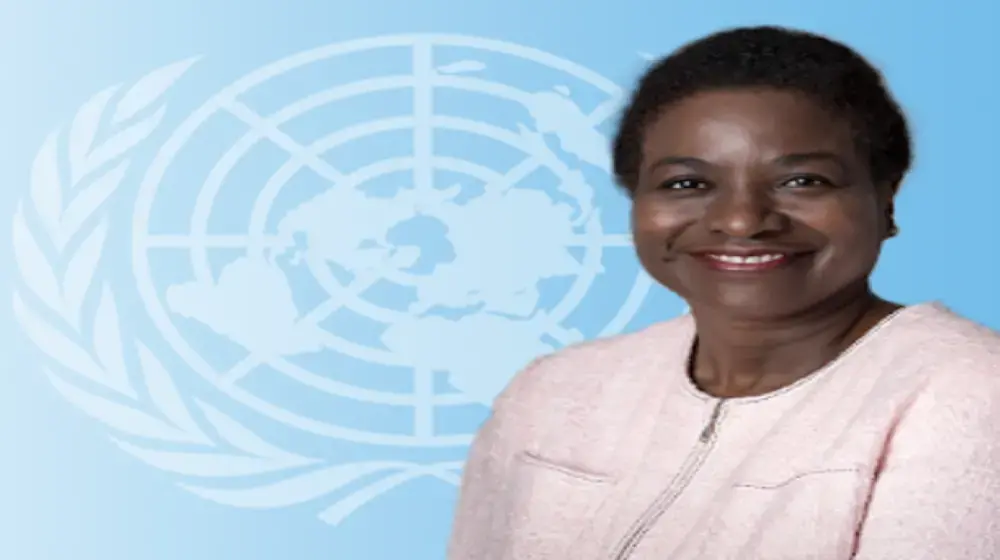KAPCHORWA DISTRICT, March 7: It was yet another milestone in the campaign against female genital mutilation (FGM) that morning with over 300 people participating in the ‘Tokyo 2020 End FGM Run’ in Kapchowa town, Eastern Uganda.
Runners including the young, elderly, schoolchildren and professional athletes thronged the sporting ground set for the challenge. Most outstanding was the accounts of zeal and determination displayed by the young women and girls who dared to take to the tracks and return as winners. Among them was eleven-year-old Canlenda Mercy, who with the support of her mother, Juliet Muyama registered as a participant. After completing the 5KM race, beaming with joy, Mercy was recognized and awarded with a certificate of participation.
“Mercy is very interested in sports. Today she was determined to come and run,” said her mother Juliet Muyama.
According to Muyama, national cross-country champion Doreen Chesang who also hails from Kapchorwa district inspired Mercy. Now, Muyama said, supporting her daughter to excel in both school and sports is a priority, and for that, she will protect Mercy from FGM and child marriage.

Janat Chemusto (2nd runner up) and Doreen Chemitai (First runner up) pride with their certificates
of participation. PHOTO: UNFPA/Evelyn Matsamura Kiapi
“For me, FGM on my daughter is a no, and I will make sure she stays in school until she completes her education. Sports is also building her confidence,” she says.
Many of the young women and girls at the race carried similar sentiments about FGM. Twenty-three-year-old Rachel Chebet said she participated in the race because it was the right thing to do, to build her confidence and keep healthy. She said it was also her way of saying no FGM: “I want FGM to be stopped because it is harmful and discriminative. It is not a right thing to do. FGM is not fashionable anymore. Moreover, these days, some cut girls are being discriminated against,” she said.
Other participants, including Radah, Peace and Mercy, senior three students of Town view Secondary School in Kapchorwa district expressed a high level of knowledge on the dangers of FGM and how to be protected from it. The schoolgirls were confident and vowed not to be cut against their will since they are protected by the Anti-FGM Act:
“Our futures are bright. We cannot be forced to be cut because we are protected by the law,” Radah says.

district also participated in the race. They said they are empowered enough to know that
FGM/C is illegal. PHOTO: UNFPA/Evelyn Matsamura Kiapi
The Japan International Corporation Agency (JICA), UNFPA Uganda, the Ministry of Education and Sports, and the Uganda Olympic Committee jointly organized the Tokyo 2020 End FGM run.
In his remarks, Senior Representative JICA Uganda H. E Uchiyama Takayuki said the objectives of the race were threefold: to promote Tokyo 2020 Olympic and Paralympic games; to raise awareness on the importance of sports to promote development and peace and the contributions it makes to the empowerment of women, young people, individuals and communities; and to increase awareness on ending FGM in Sebei Region.
Empowering women and girls through sports
Stereotypes and social norms and discrimination remain barriers to gender equality. However, evidence shows that sport participation offers girls an opportunity to build their self-esteem and courage. UNFPA recognizes sports as a powerful tool to engage communities so that they can challenge and address negative gender norms and stereotypes.
It empowers women and young people, improving their self-esteem, wellbeing and leadership skills. In this regard, in 2019, UNFPA developed three partnerships to explore the impactful role of sport in improving the lives of women and girls. They are; the Special Olympics to empower youth with intellectual disabilities, especially girls and women, to receive increased social protection and greater access to health services, partnership with Rugby United New York (RUNY) to create opportunities for young people through sports-based initiatives, and a cooperation agreement with the Koyamada International Foundation (KIF) to promote gender equality and women and youth empowerment through sports, outreach and visibility activities.
-Story by Evelyn Matsamura Kiapi



